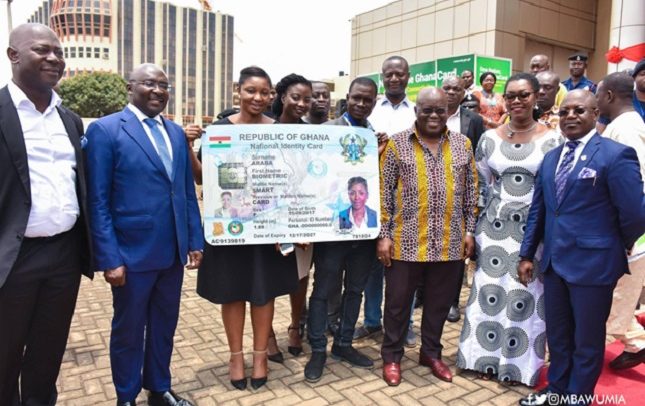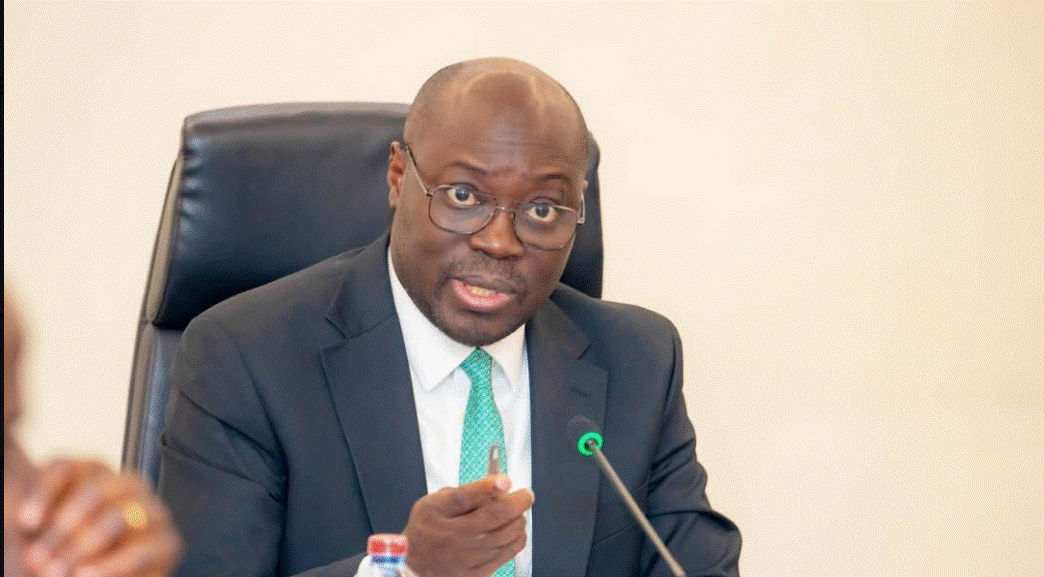
Ghana is using technological to solve local problems in governance. Over the past two years, the government has rolled out a number of digitization initiatives to facilitate access to and enhance the delivery of government services.
Vice President Dr. Mahamudu Bawumia disclosed this at Emerging Markets Summit on the theme "Digital Governance in Emerging Markets" at the University of Chicago Booth Business School in the United States of America on Saturday, April 13, 2019.
He said, in order to realise the 'Ghana Beyond Aid Agenda' a conscious effort is being made by the government to "formalize the economy by leveraging technology innovation and digitization."
"With digitization, we are introducing new and more efficient ways of doing things. We are changing the way things are done in the affected institutions for the benefit of ordinary Ghanaians," Dr. Bawumia said.
Outlining some of the reforms which have been undertaken in the digitization and formalization process in the last two years, Dr. Bawumia stated: "The introduction of National ID Cards (with fingerprints, Iris and photo) is a game changer and the process should be completed in another year. Everyone will have a unique ID (like the Social Security Number) from birth to death. It will form the basis for an integrated national database system.
"We have leveraged on technology to introduce a Digital Address System. Every 5x5 square meter of land or water in Ghana has a unique digital address. The mobile application (GhanaPostGPS) is available on the google play store or iTunes. It can find any location in Ghana. The UK, for example, took 15 years to roll out the postcode system. Thanks to technology, we did it in one year with more precision."
To address the challenge of financial inclusion, Vice President Bawumia indicated that "Mobile money payments interoperability has been implemented. We have solved the problem of financial inclusion be making mobile money accounts interoperable with bank accounts. This is a major step to financial inclusion and movement towards cashless payments for government services".
With this, Ghana is set to abolish cash payments for government services as all payments will be possible electronically whether you have a bank account or not.
In addition, Dr. Bawumia mentioned the innovative online National Health Insurance registration, online tax-filing system, e-registration of businesses, automation of the application for business operating permit, automation of the construction permit system, implementation of an electronic justice system to track court documents, the paperless port system and the yet-to-be rolled out Zipline medical drone system.
"Leapfrogging to an innovative knowledge-based economy is necessary if we are to stimulate a sustainable path of development anchored to the wealth of our natural resources. To this end, we are investing in free senior high school education to make sure children from poor homes are not denied senior high school education, a graduate internship and learning programme covering a 100,000 young Ghanaians for starters, and support for young entrepreneurs through a National Entrepreneurship and Innovation Programme," the vice president stated.
Dr. Bawumia said the government would continue to play its role of making the environment conducive for the private sector to "develop solutions to our local problems."
"As the government, we need to play a role not only in planning the application of technology in addressing our development challenges but also in the facilitation and promotion of enterprise level technological efforts.
We believe that some supportive role of government is necessary for the development of technological capabilities in our quest for industrial pathways," he concluded.
We believe that some supportive role of government is necessary for the development of technological capabilities in our quest for industrial pathways," he concluded.
Read Full Story




















Facebook
Twitter
Pinterest
Instagram
Google+
YouTube
LinkedIn
RSS